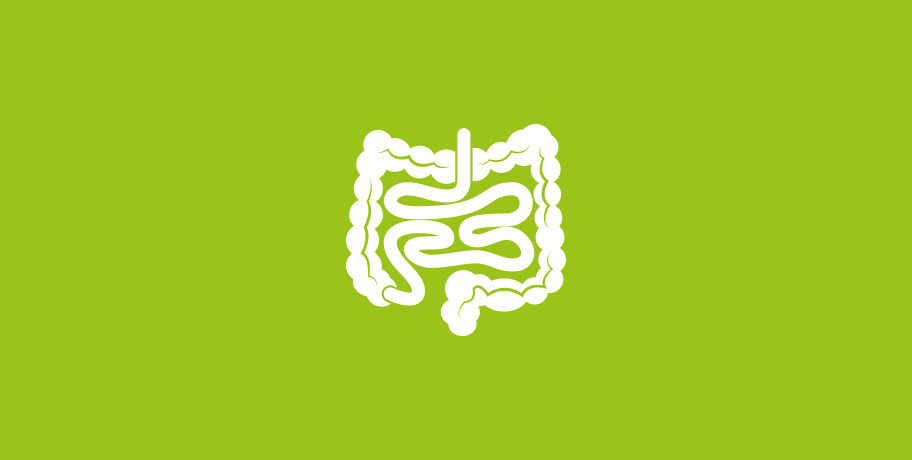
Dietary supplements should not be used as a substitute for a varied diet. A diverse and balanced diet and a healthy lifestyle are important. Our articles and tips are not intended to diagnose or treat diseases. They are merely advice and self-care tips and do not replace conventional medical care.
Contact our customer service at [email protected] to receive free dietary advice, as well as other free self-care tips and health protocols to support gut health.
What is Glutamine?
Glutamine is one of the 20 amino acids normally found in protein in food. It regulates the body's acid-base balance and is necessary for the formation of glucose.[1] Glutamine also reduces the risk of ischemia (oxygen deficiency in tissues due to insufficient blood supply), likely through its ability to produce glutathione.[2][3][4] Additionally, glutamine has been shown to protect blood vessels.[5] It helps reduce high glucose spikes associated with carbohydrate intake.[6] Glutamine is also the main energy substrate for immune cells (leukocytes).[7] Animal studies and in vitro studies have shown that glutamine is an important amino acid for muscle protein synthesis.[8][9] Moreover, cell studies have demonstrated that glutamine reduces the oxidation of leucine, thereby enhancing leucine’s effect in muscle cells.[10]
Is Glutamine Good for the Immune System?
Glutamine is the main energy substrate for immune cells (leukocytes).
Is Glutamine Dangerous?
Glutamine is one of the amino acids that are building blocks of proteins. It occurs naturally in protein-rich foods and is not dangerous.
Glutamine, the Gut, and Glutathione
Supplementation with glutamine is effective for gut lining health because the gut lining prefers glutamine over glucose as an energy source. Glutamine is also the most abundant amino acid in tissues (especially muscle tissue) and blood. It acts as a precursor to one of the body’s most important antioxidants: glutathione.
Glutamine and Exercise
Glutamine levels in the blood decrease during prolonged aerobic exercise such as long-distance running, cycling, or other low-intensity physical activities lasting a long time. Research shows that glutamine supplementation may help reduce damage to immune cells associated with prolonged cardiovascular exercise.[11] If you are healthy, glutamine is unlikely to be the supplement that significantly increases your muscle mass during strength training, but a small study shows it may prevent muscle breakdown.[12]
Glutamine and Leaky Gut
Supplementation with glutamine prevents leaky gut by regulating proteins in tight junctions (zonula occludens).[13] If these cells are depleted of glutamine, intestinal permeability increases rapidly.[14][15] Leaky gut means that partially digested food molecules can pass from the gut into the bloodstream, potentially causing various issues.
Glutamine, Digestive Issues, Collagen, and Skin
Dr. Nicholas Perricone in the USA says: “In summary, glutamine can be used whenever there are digestive issues, from simple overconsumption of alcohol to ulcers, virus-related diarrhea, or even more serious problems like inflammatory bowel diseases.”[16]
Glutamine, along with the amino acid arginine, vitamin A (found in all our multivitamins), vitamin B, vitamin C, vitamin D, zinc, and iron, is essential for collagen production, which in turn is necessary for healthy skin. Curcumin, found in turmeric, also contributes to collagen formation.[17]
Glutamine, Stress, and Illness
Under certain circumstances, the body experiences more stress than normal, such as during restrictive diets, poor dietary habits, illness, or intense training. Blood tests show that amino acids are broken down in the body during these conditions because central and vital organs require amino acids to maintain overall health. The body’s initial reaction is to “cannibalize” nutrients from the muscle mass of, for instance, a heavily training athlete, prioritizing vital organs over unnecessary muscle mass. Glutamine is the first amino acid to be broken down, followed by large amounts of branched-chain amino acids. In short, the amino acids most abundant in muscles are the first to break down. Therefore, it may be wise to replenish these to maximize training effectiveness. Glutamine is also a perfect building block for glutathione, one of the body’s most powerful antioxidants. The more glutathione in the cells, the better the body is protected from free radicals.
GI Response from Innate Response contains 5 mg of the highest-quality glutamine per scoop. GI Response also includes several other gut-supporting substances.
Sources & Scientific References
[1] J Nutr. 2008 Oct;138(10):2045S-2049S. Gleeson M.
[2] JPEN J Parenter Enteral Nutr. 2003 Mar-Apr;27(2):116-22.
[3] Life Sci. 2007 Apr 24;80(20):1846-50. Epub 2007 Feb 22. Fujita T, Yanaga K.
[4] Acta Physiol Scand. 2001 May;172(1):1-10. Leichtweis S, Ji LL.
[5] Nutrition. 2002 Feb;18(2):123-6. Khogali SE, Pringle SD, Weryk BV, Rennie MJ.
[6] Nutrition. 2011 Sep;27(9):938-42. doi: 10.1016/j.nut.2010.08.025. Epub 2010 Dec 3. Awad S, Fearon KC, Macdonald IA, Lobo DN.
[7] Biochem J. 1983 Jun 15;212(3):835-42. Ardawi MS, Newsholme EA.
[8] FEBS Lett. 1988 Sep 12;237(1-2):133-6. MacLennan PA, Smith K, Weryk B, Watt PW, Rennie MJ.
[9] FEBS Lett. 1987 May 4;215(1):187-91. MacLennan PA, Brown RA, Rennie MJ.
[10] American Journal of Physiology - Endocrinology and Metabolism. Published 1 October 1996 Vol. 271 no. E748-E754. R. G. Hankard, M. W. Haymond, D. Darmaun.
[11] Eur J Appl Physiol. 2008 Jun;103(3):289-94. doi: 10.1007/s00421-008-0702-1. Epub 2008 Mar 5. Cury-Boaventura MF, et al.
[12] Am J Physiol Endocrinol Metab. 2000 May;278(5):E817-24. Claeyssens S, et al.
[13] Am J Physiol Gastrointest Liver Physiol. 2004 Sep;287(3):G726-33. Epub 2004 May 6. Li N, Lewis P, Samuelson D, Liboni K, Neu J.
[14] Pediatr Res. 2002 Sep;52(3):430-6. Potsic B, Holliday N, Lewis P, Samuelson D, DeMarco V, Neu J.
[15] J. Nutr. July 1, 2003 vol. 133 no. 7 2176-2179. Monolayers Vincent G. DeMarco, Nan Li, Justin Thomas, Christopher M. West, Josef Neu.
[16] Internet http://www.dailyperricone.com/2009/01/targeted-foods-and-supplements-for-healthy-slimming/
[17] Int J Mol Sci. 2019 Mar 5;20(5). Barchitta M, et al.
